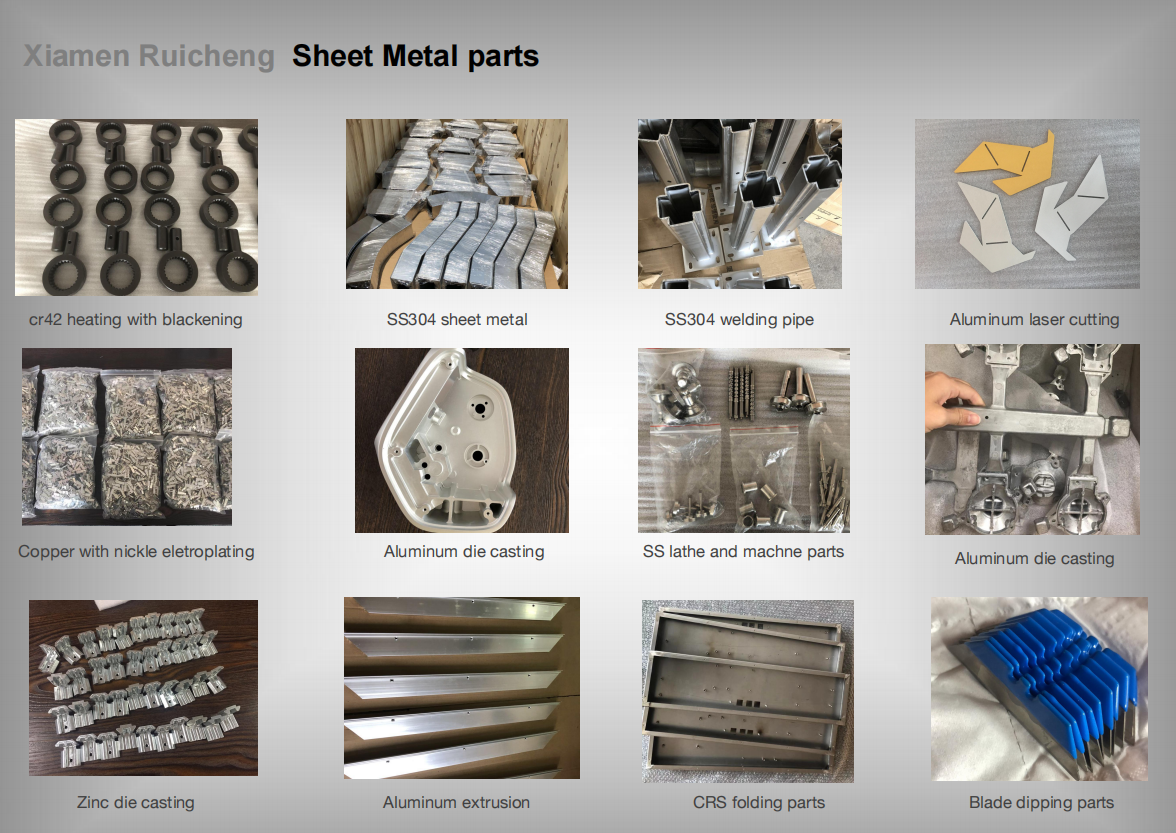materials characteristic application area
Aluminum Alloy Aluminum alloy is a lightweight metal material with good strength and corrosion resistance. It is widely used in automotive components, electronic product casings, and household items.
Stainless Steel Stainless steel, composed of chromium, nickel, and other alloying elements, possesses corrosion resistance, strength, and aesthetic appeal. It is commonly used in kitchenware, furniture, architectural decoration, and medical equipment.
Steel Steel is a metal material with high strength, wear resistance, and ductility. It finds extensive applications in automobiles, machinery, and building structures.
Copper Copper has excellent electrical conductivity, thermal conductivity, and malleability. It is used in electronic products, pipes, and decorative items.
Titanium Alloy Titanium alloy is a lightweight, high-strength metal material with good corrosion resistance and biocompatibility. It is widely used in aerospace, medical devices, and sports equipment.
Zinc Alloy Zinc alloy has good fluidity and formability commonly used in mold manufacturing, automotive components, and hardware accessories.
Magnesium Alloy Magnesium alloy is a lightweight, high-strength metal material with good mechanical properties and corrosion resistance. It finds applications in aerospace, automotive, and electronic products.
Brass Brass is an alloy of copper and zinc, exhibiting good mechanical properties and corrosion resistance. It is used in decorative items, hardware accessories, and musical instruments.
How to choose different metal materials according to the product?
Functional requirements: Firstly, it is important to clarify the functional requirements of the product. For example, if the product needs to have high strength and wear resistance, steel or titanium alloy might be more suitable choices. If the product requires excellent conductivity, copper could be a better option.
Environmental conditions: Consider the environmental conditions in which the product will be used. If the product will be exposed to humid or corrosive environments, stainless steel or other corrosion-resistant materials may be preferred. If the product will be used in high-temperature environments, heat-resistant materials such as nickel alloys or titanium alloys might be more suitable.
Cost and manufacturability: Take into account the cost and manufacturability of the materials. Some metal materials can be more expensive and more challenging to process, so cost and manufacturing feasibility need to be evaluated. Sometimes, it is possible to opt for relatively cost-effective and easily processed alloys or combinations of alloys to meet cost and manufacturing requirements.
Aesthetic and design requirements: The appearance and design of the product are also important factors in selecting metal materials. Different metal materials have distinct appearances, textures, and finishes, which can be utilized to achieve specific aesthetic effects. Therefore, based on the design requirements of the product, choose metal materials that align with the product style and goals.


Choosing the right metal material is crucial for the success of your product. Let us know your customization needs, and our team will offer professional guidance on product performance requirements, cost-effectiveness, availability, environmental considerations, and sustainability factors. We will help you select the appropriate metal materials to establish a strong foundation for your product, differentiating you from competitors in the marketplace. So, get in touch with us today!

Post time: Feb-03-2024
